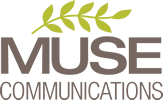Law Firm Website No-Nos
A law firm's website isn’t just a dusty online brochure. It's a dynamic hub that can shape potential clients' first impressions and serve as a virtual handshake that introduces your firm's expertise, culture, and track record. A well-designed website has the ability to attract new clients and showcase your firm's unique offerings.
As the first place a prospective client (or hire) will go to learn more, a firm’s website should educate and motivate. While Texas lawyers need to follow the State Bar’s advertising rules for websites, as my colleague Bruce Vincent discussed in this post, your website should aspire to do more than simply meet those requirements.
To that end, here are some common mistakes we see that can sabotage a firm’s online presence:
Need help promoting yourself? That’s why we’re here! Muse Communications was named one of Texas’ best legal public relations firms by the readers of Texas Lawyer. Contact us to schedule a consultation.
Gavels, Scales and Other Clichés: Stock photos of blindfolded lady justice and fusty law books might scream "lawyer," but they do little to stand out in a sea of competitors. Think outside the gavel. Consider featuring images that showcase your practice area (as seen on the energy litigation boutique The Castaneda Firm) or your local presence (such as the original drawings of Austin on Botkin Chiarello Calaf). Even abstract themes can work if they convey the right message about your firm.
SEO Suicide: If your practice relies on search engine results to drive clients, clever website copy might be tempting, but it could hurt your search engine rankings. Instead of cryptic phrases like "We have your best interests at heart" (which could apply to almost any business), use clear, concise language that speaks directly to your practice areas. Search engines reward websites that tell them exactly what they do, so something like "We handle contested divorces" is far more effective.
But, Is SEO Really Your Journey? Not every firm depends on search engine results for their business. I’ve even worked with clients who want to avoid appearing on search results altogether because, they say, people who can afford their rates “don’t find lawyers on the Internet.” So, if you get most of your work through referrals, don’t spend your time or money optimizing your website to dominate search engine results for “(your practice area) lawyer (your city).” Invest that money in nurturing your referral network instead.
The Perils of "Coming Soon": A "coming soon" page might seem like a harmless placeholder, but it sends a terrible message, particularly when “soon” lasts months, even years. If a particular page on your site isn’t ready to be unveiled, keep it veiled until it is.
Ghost Town Social Media: A firm’s social channels can be a powerful tool for connecting with potential clients, but only if you're actively using them. Don't link to dormant social channels that haven't seen a post in ages. It's better to close those accounts entirely. Focus your efforts on platforms where your target audience actually hangs out. For most law firms, LinkedIn and, depending on your practice area, Facebook are good bets.
The Blog That Time Forgot: If it's been more than six months since your last post, it's time to make a change. Either commit to publishing regular updates or take down the page until you have fresh news to share.
Trophy Case Time Warp: Awards are great, but they have an expiration date. Those fancy badges you display on your homepage can be potent validators. But if they're more than a year or two old, the message they’re sending is, “We haven’t won any awards lately.” In addition, some award companies have a one-year "shelf life" on their badges and are not shy about enforcing it.
Under the Hood Blues: Websites aren't static entities. They require regular maintenance, especially if you're using a platform such as WordPress, where outdated themes and plugins can make your site unstable and prone to crashing. If you don't have someone on staff who can handle this, consider hiring a developer or IT consultant. (Let us know if you need a trustworthy referral.)
Skimping on Hosting: If your firm’s website is on a budget hosting platform, consider upgrading to a more robust host. The improved customer service, automatic back-ups, and other perks will be greatly appreciated if you experience stability or security issues or, heaven forbid, crash altogether. It happens. So, it’s worth paying more for a hosting company that has your back.
The "Set It and Forget It" Trap: Many of these issues boil down to one thing: neglecting your website. Building a website takes time and effort. But the work doesn't stop there. Your website needs regular attention, both on the user-facing side (fresh content, updated information) and behind the scenes (security patches, code updates).
Take the time to visit your firm’s website regularly and ensure it's making a positive impression. Is it current, informative, and easy to navigate? Does it accurately reflect your firm's unique value proposition? If the answer's no, it’s time to make some updates.
And if you need a fresh pair of eyes, don't hesitate to reach out. We'd be happy to help!
Amy Boardman Hunt is all about helping lawyers find their voice and showcase their expertise. When she’s not doing that, she’s trying to find great hiking spots in Dallas. If you know of any – or you need a legal marketing muse – drop her a line at amy.hunt@muselegalpr.com.


